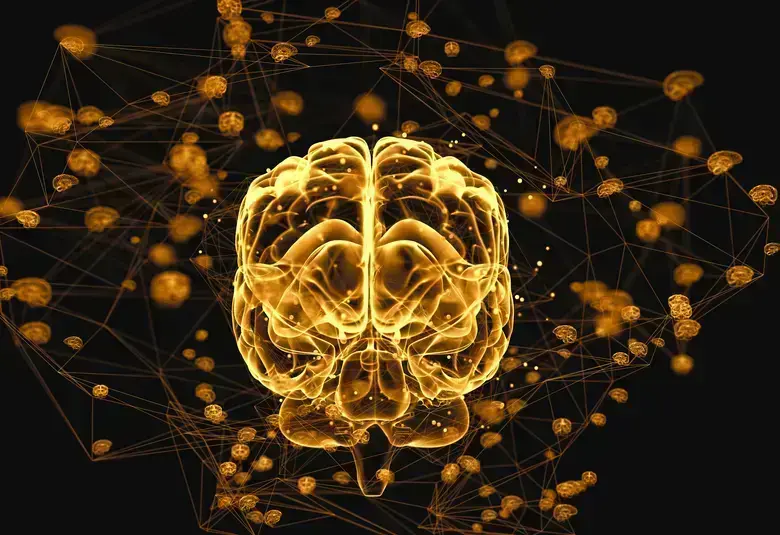Psychotic depression may develop in response to a major traumatic event; such as bereavement or devastating loss of a job, which impacts the biological stress response resulting in high cortisol levels and increased glucocorticoid receptor gene activity. Clinical expression of these biological changes includes the psychotic and neuropsychological features of psychotic depression. Alan Schatzberg, Professor, Psychiatry and Behavioral Sciences, Stanford University School of Medicine, CA and past-president of the APA, shared his extensive expertise on psychotic depression at APA 2018 after being presented with the Judd Marmor Award for his significant and sustained contributions to psychiatry.
정신병적 우울증은 사별, 실직으로 인한 충격과 같은 중대한 정신적 외상에 의하여 발생할 수 있습니다. 이러한 정신적 외상은 생물학적 스트레스 반응에 영향을 미치게 되어 체내 코티솔 레벨이 증가하고, 당질코르티코이드 수용체 유전자의 활성이 증가하게 됩니다. 이러한 생물학적 변화로 인한 임상적 양상은 정신병적 우울증에서 나타나는 정신학적 및 신경학적인 특징을 포함하고 있습니다. APA(미국 정신과 학회)의 전 회장이며, 캘리포니아주 스탠퍼드대학교 정신건강의학, 행동과학 교수인 Alan Schatzberg는 정신의학 분야의 발전에 기여한 공로를 인정받아 Judd Marmor Award를 수상하였고, 수상 이후 폭넓은 정신의학 전문지식을 공유하였습니다.
Psychotic depression is depression accompanied by psychotic features, particularly:
- delusions of guilt
- delusions of deserved punishment
- delusions of poverty
- nihilistic delusions
- somatic delusions, and
- in one-third of patients, hallucinations, which are typically auditory and transient
정신병적 우울증은 정신병적 특징이 동반되는 우울증이라 할 수 있습니다. 특히 정신병적 우울증은 아래의 특징들을 보입니다.
- 죄의식에 대한 망상
- 처벌 받을 이유가 있다는 망상
- 가난, 빈곤에 대한 망상
- 허무주의적 망상
- 신체적 망상
- 환자의 1/3에서 나타나며, 일반적으로는 일시적이고 청각에서 나타나는 환각
It develops in response to a major traumatic event such as bereavement or devastating loss of a job, which affects the biological hypothalamic-pituitary-adrenal (HPA) stress response, explained Professor Schatzberg; and despite treatment, it is associated with a high mortality rate.
Schatzberg 교수는 정신병적 우울증은 사별과 실직으로 인한 충격과 같은 정신적 외상을 초래할 정도의 큰 사건에 의하여 발생하며, 이는 시상하부-뇌하수체-부신의 생물학적 스트레스 반응에 영향을 준다고 설명하였습니다. 정신병성 우울증은 치료를 받더라도 사망률이 높은 질환입니다.
Psychotic depression is relatively common
정신병적 우울증은 비교적 흔한 질환입니다.
Psychotic major depression affects four in every 1000 individuals
주요 정신병적 우울증 환자는 1000명 중 4명 꼴로 나타납니다.
Professor Schatzberg investigated the prevalence of psychotic depression in 2002.1 Among 18,980 subjects in five European countries, the prevalence of a major depression was 2.4%, and 19% of these subjects had psychotic features; that is, psychotic depression had a prevalence of 0.4%.1 The diagnosis is, however, frequently missed, Professor Schatzberg said, because patients hide or are unwilling to share their thoughts (i.e., delusions).
Schatzberg 교수는 2002년에 유럽 5개 국가의 18,980명을 대상으로 정신병적 우울증 유병율을 조사하였습니다.1 주요 우울증의 유병율은 2.4%이였고, 이 중 19%는 정신병적인 특징을 보였습니다. 즉, 정신병적 우울증 유병율은 0.4% 이었습니다.1 하지만 Schatzberg 교수는 환자들이 자신의 생각(망상)을 숨기거나, 공유하고 싶어하지 않기 때문에, 진단을 놓치는 경우가 빈번하다고 말했습니다.
Cortisol levels are high in psychotic depression
정신병적 우울증 환자는 체내 코티솔 레벨이 높습니다.
Psychosis is associated with high levels of glucocorticoids
정신병적 우울증은 높은 당질코르티코이드들의 농도와 연관되어 있습니다.
More than 35 years ago, Professor Schatzberg and his colleagues investigated late afternoon plasma cortisol levels using the dexamethasone suppression test in 31 controls and 34 patients with psychosis.
35년 이상 전에, Schatzberg 교수와 연구진은 덱사메타존 억제 시험을 활용하여 34명의 정신병 환자와 31명의 대조군을 대상으로 오후 시간대의 혈장 내 코티솔 농도를 측정하였습니다.
They found that cortisol levels were significantly higher in the patients with psychotic depression than in control subjects or in patients with psychosis associated with bipolar depression or schizophrenia.2
연구 결과 대조환자, 또는 양극성 우울증과 조현병과 같은 정신질환 환자와 비교하였을 때, 정신병적 우울증 환자의 체내 코티솔 농도가 높다는 것을 확인하였습니다.2
More recent research has shown that glucocorticoids regulate DNA, gene transcription and mRNA, explained Professor Schatzberg. They affect approximately 20% of the expressed human genome and have effects on almost every organ and tissue.3 In addition, he noted that high levels of glucocorticoids are known to cause psychosis.
Schatzberg 교수는 보다 최근의 연구에서 당질코르티코이드들은 DNA와 mRNA 전사를 조절하는 역할을 한다고 설명하였습니다. 이들은 발현되는 인간 유전자의 대략 20%에 영향을 미치며, 거의 모든 장기 및 조직에 영향을 끼치고 있다고 설명했습니다.3 또한 당질코르티코이드들의 높은 체내 농도는 정신병을 일으키는 것으로 알려져 있다고 덧붙였습니다.
Psychotic depression is associated with cognitive deficits
정신병적 우울증은 인지기능 결함과 연관되어 있습니다.
Psychotic depression is associated with cognitive deficits
정신병적 우울증은 인지기능 결함과 연관되어 있습니다.
The major neuropsychological deficits in non-psychotic depression are story learning, verbal declarative memory, visual memory and visual-spatial perception, attention, executive function and response inhibition, said Professor Schatzberg.
Schatzberg 교수는 비-정신병성 우울증의 주요한 신경심리학적 결핍은 이야기 학습, 언어 서술 기억, 시각 기억, 시각-공간적 인식, 주의력, 실행 기능 그리고 반응 억제가 있다고 설명했습니다.
In 2000, he and his colleagues suggested that their data showing significantly impaired attention, response and verbal declarative memory in psychotic depression demonstrated impaired thought mediated by the frontal cortex and mediotemporal lobes.4
2000년에 Schatzberg 교수와 연구진은 정신병적 우울증에서 현저히 저하된 주의력, 반응, 언어 서술 기억력 데이터가 전두엽 피질과 내측두엽의 조절에 의한 사고력 손상을 설명한다고 제안하였습니다.4
Glucocorticoid receptor gene activity is increased in psychotic depression
정신병적 우울증에서 당질코르티코이드 수용체의 유전자 활성이 증가합니다.
Glucocorticoid receptor genotype contributes to the severity of psychosis
당질코르티코이드의 수용체 유전자형은 정신병의 중증도에 영향을 미칩니다.
In 2014, Professor Schatzberg and his colleagues explored HPA axis genetic variation, cortisol and psychosis in major depression.5
2014년 Schatzberg 교수와 연구진은 주요 우울증에서의 HPA 축의 유전적 변이, 코티솔, 그리고 정신병에 대하여 조사하였습니다.5
Among 40 patients with psychotic depression, 26 with non-psychotic depression and 29 healthy controls, allelic variation for the glucocorticoid receptor gene accounted for a significant variance in mean cortisol levels. Furthermore, glucocorticoid receptor and corticotropin-releasing hormone receptor 1 (CRHR1) genotypes contributed significantly to measures of psychosis, while CRHR1 contributed significantly to depression severity.5
40명의 정신병적 우울증 환자와 26명의 비-정신병적 우울증 환자, 29명의 건강한 사람을 대상에서 당질코르티코이드 수용체 유전자의 대립형질의 차이가 평균 코티솔 농도의 차이를 설명하였습니다. 게다가 당질코르티코이드 수용체와 부신피질자극호르몬방출호르몬 수용체1(corticotropin-releasing hormone receptor 1, CRHR1)의 유전자형은 정신병의 측정도에 크게 기여하였으며, 동시에 CRHR1은 우울증의 중증도에도 큰 영향을 끼쳤습니다.5
Professor Schatzberg concluded that this understanding of increased glucocorticoid receptor gene activity in psychotic depression may provide a therapeutic opportunity, although more research is needed to illustrate a meaningful clinical effect.
Schatzberg 교수는 임상적으로 의미 있는 영향을 보여주기에는 더 많은 연구가 필요하지만, 정신병적 우울증 환자에서의 당질코르티코이드 수용체 유전자 활성 증가를 이해하는 것은 질환 치료의 기회를 제공해줄 수 있을 것이라고 결론 내렸습니다.
본 자료는 Global Lundbeck 의학부에서 선별한 학술대회 콘텐츠이며, 한국룬드벡의 의견과 다를 수 있습니다




